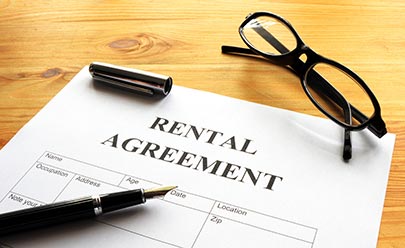Money is tight for many seniors. More than 25 million Americans older than 60 live at or below 250% of the federal poverty level. Even seniors who aren’t “poor” but rely on Social Security struggle to meet their monthly expenses. Already facing rising health-care costs, many also fear they might have to deal with higher senior housing rents.

After55.com® heard from one such senior soon after our first Ask After55.com article. A reader named Kathy wrote in:
“I’m looking at affordable senior housing 55 and above. Yes, I can probably afford the rent now, but if increases are imposed, it would not be long before it would not be affordable for me.”
While an annual increase in living expenses is expected, is the same true when you live in a senior apartment or retirement community? If you’re concerned like Kathy, read on to learn more about how rent increases are handled in senior housing.
Senior Housing Rents on the Rise
Housing is a major expense, whether you live in a retirement community, 55+ apartment, assisted living facility, or nursing home. And costs are going up. In general, you should expect rental rates to increase by about 3% a year, based on several recent reports.
According to the Genworth 2015 Cost of Care Survey, the following types of senior housing saw these increases from 2014:
Assisted Living: Up 2.86%.
Nursing Homes: Up 3.77% for a semi-private room, up 4.17% for a private room.
Information about rent increases in independent living and senior apartments is harder to come by. But these rates have been reported:
Independent Living: Up 3.1% in 2014, for existing residents at nonprofit senior living communities.
Apartments: Up 4% nationally in 2016. This is for apartments in general, not just senior apartments.
Overall, senior living costs rose 2.7% in 2015. For seniors living on a fixed income, a rent increase can make it that much harder to make ends meet. It doesn’t matter if you are paying for your housing from a retirement fund or with assistance from Medicare or Medicaid.
Handling a Senior Housing Rent Increase

When and how much your rent increases in senior housing depends on where you live, your income, and how much care you receive.
For instance, if you or your loved one in assisted living has a decline in health and needs additional care, this can result in a higher housing rate. This can include something as simple as one additional shower per week or eating in your room as opposed to the community dining area.
As for a senior apartment, a property manager can raise your rent as much as he chooses at the end of your lease — unless you live in a rent-controlled or rent-stabilized area, are governed on a local level, or have rules about how often and how much your rent can be increased. New York City, for instance, has a Senior Citizen Rent Increase Exemption.
However, a property can raise your rent only when your lease expires and with a suitable amount of notice (30 to 60 days). You also will want to make sure the increase doesn’t violate the terms of your lease. If you still feel your rent increase is too high, you can try the following:
- – Negotiate with your property manager. (Get some rent-negotiation tipss here.)
- – Do your market research to know what a fair price is.
- – Contact a housing mediation service or real estate lawyer.
How to Avoid a Rent-Hike Surprise

No matter where you live, your rates, services and fees should all be outlined in your admission agreement or rental contract.
In senior housing especially, it’s important that you understand whether and how management bills for extra services. Also, ask about how the senior housing community has increased rental rates in the past. For additional questions to ask, see After55.com’s Assisted Living Guide and Independent Living Guide.
If you do your homework when considering senior housing, there shouldn’t be any surprises.
This article was originally published on After55.com: How Are Senior Housing Rent Increases Handled?
—
What Are Your Senior Housing Questions?
Ask After55 is a monthly feature of After55.com by correspondent Mary Beth Adomaitis. Submit your questions for consideration in one of two ways:
– Comment below on this article. (Your question will be displayed publicly, so we suggest that you don’t include personally identifying information.)
– Fill out this form. (Your question will be sent to us privately. Note, however, that we aren’t able to answer all questions, especially on individual situations.)

